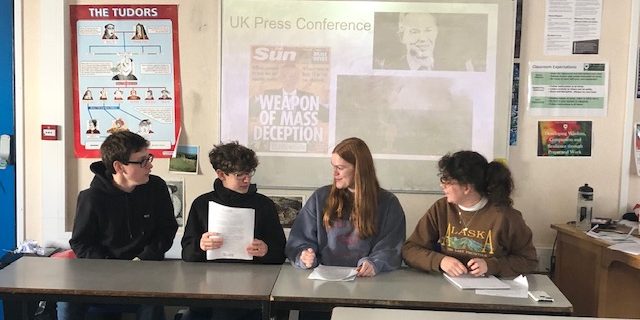On 12th October, Margot Tudor (WFTA Postdoc) and Lottie Titcombe (WFTA Research Assistant) visited Saint Benedict’s School in Bury St Edmunds to trial some educational resources based on the archival material hosted on our website. Mrs Titcombe kindly invited us to take-over the 2-hour session and turn her classroom into a press conference set in 2003!
